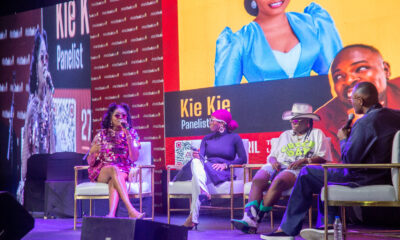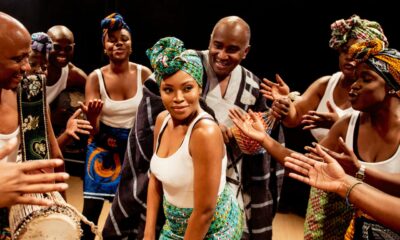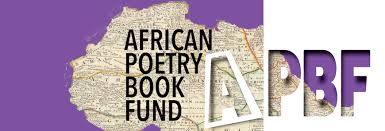Features
Fadeke Balogun: Top 10 Books Every Nigerian Needs to Read Before they Turn 18
For many years, I have enjoyed reading about our culture and history, and I am horrified at how disconnected a lot of young Nigerians are from our history. The truth is there is a lot more to the country than afrobeats, eating jollof rice and Detty December. Our history surpasses slavery and colonization. If you are looking to develop a holistic perspective as a Nigerian, or even learn more about our home country, then this article is for you.
There are some essential books that every Nigerian should read before the age of 18. I have selected 10 of these books for their cultural and historical significance. These books will help us understand and cherish the ‘Nigerian narrative.’ If you are above 18, try checking off the ones you’ve read and let’s see how far you’ve come.
“A Month and a Day” by Ken Saro-Wiwa
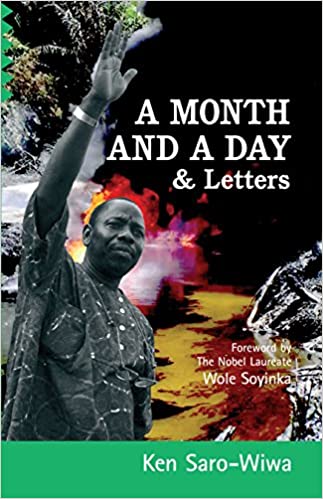
This book is an emotional account of Ken Saro-Wiwa’s life when he was detained in 1993. It’s also a personal history about the campaign for the Ogoni people, and how Ken Saro-Wiwa’s outspokenness and bravery made him the target of the despotic Nigerian military regime.
After his arrest for his involvement in electoral disturbances in 1993, Ken was thrown into prison. He chronicled, in chilling details, the maltreatment and abuse he was subjected to by General Ibrahim Babangida’s cronies. In his book, he gave us insight into the fight for the Ogoni people, and exposed how flexible Nigerian laws can be. Despite the hurdles and obstacles he faced, his belief in his dreams never once faltered, even as his health failed him. Exactly a month and a day later, he was freed from jail.
This book is an ode to perseverance and the fight for true freedom. It gives an insight into the life of a fighter and it is an excellent read.
“A Gamble with Death” by Kelechi Goodluck
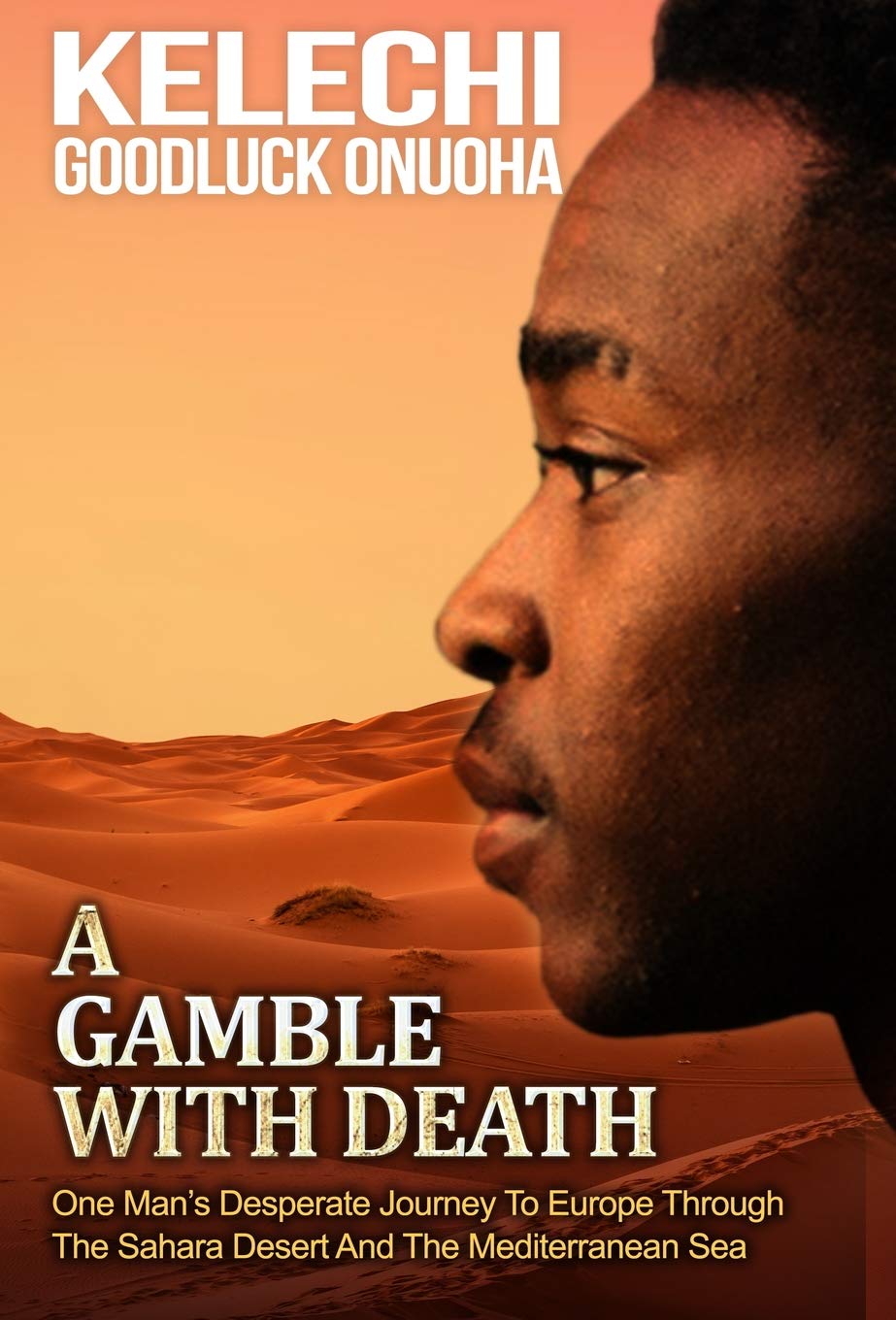
The thought of living abroad is a dream to a lot of Africans; they view it as heaven on earth. This infatuation is what led Kelechi and many others to embark on a dangerous journey from Africa to Europe through the Sahara Desert and the Mediterranean Sea.
A Gamble with Death is a beautifully-written, real-life account as Kelechi retells the story of a journey to the ‘promised land’ which left thousands dead. A journey that should last weeks became a difficult one that covered years. His ignorance and desperation became a curse and, for many, a death sentence as they all gambled with their lives throughout the journey.
Kelechi merged the stories of and conversations he had with people he met during his journey. The book is guaranteed to expose how vulnerable we all can be when the idea of something great is presented to us, but as Kelechi narrated, all that glitters is not gold. This is a true-life story about what he lived through and what he saw on his way to the promised land: hell.
“Things Fall Apart” by Chinua Achebe
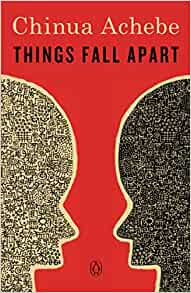
Probably the most widely acclaimed book in African literature, Things Fall Apart, written in English and published in 1958, remains a timeless novel. Things Fall Apart kick-started the formidable Nigerian literary renaissance of the 1960s.
The novel follows the life of Okonkwo, a fierce Igbo clansman desperate to create a name for himself, from when he was banished from his village, the challenges he faced as he grew, to his life after years of being in exile, and his unfamiliar battle against the missionaries and colonial government. Through the novel, we see Okonkwo and other tribal leaders fight to preserve the culture as the missionaries and their practices take over emergent Africa.
Simply put, Things Fall Apart is a beautifully crafted novel and at the center is a man desperate to hold on to his culture.
“Half of a Yellow Sun” by Chimamanda Adichie
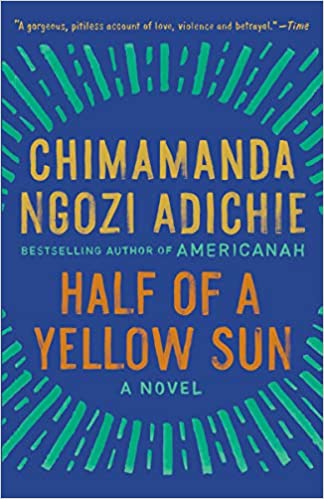
Half of a Yellow Sun is a passionate story of love and war. Set in one of the most turbulent times in Nigeria’s history — the Nigerian Civil War (1967-1970) — the novel tells the experiences of five characters during the impassioned war between the Biafrans and Nigeria with the aim of establishing a new nation. After Biafra’s declaration of secession, we see a change in the characters’ personas as the war brutally tears them apart.
As the war becomes more brutal and the Nigerian troops advance, their friendships and allegiances are tested and tried, as they begin to realize how important their relationships truly are. Half of a Yellow Sun is a remarkable novel about responsibility, conscience, the constant battle for freedom, the power of our origin, and the ways in which love triumphs.
“The Secret Lives of Baba Segi’s Wives” by Lola Shoneyin
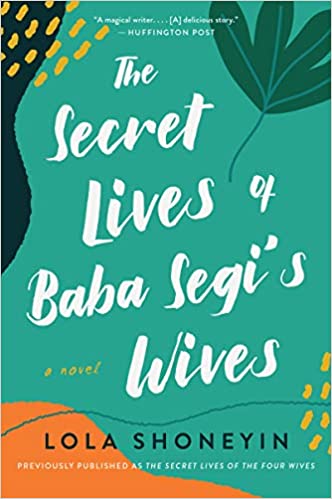
One of my favorite books of all time, this book tells an alluring and captivating tale that merges old and new ideologies. Fuelled by hate, self-preservation, and jealousy, the book’s enigmatic characters create a brilliant atmosphere.
A stirring tale of men and women, truths and untruths, The Secret Lives of Baba Segi’s Wives finds a way to connect the common threads that are synonymous with the experiences of all women.
The play is set in modern-day Nigeria where science, native wisdom and witchcraft have equal strengths in the society. Fostered by Baba Segi’s polygamy, the book tackles a far more important narrative – the power women hold and the impact of children. Bolanle, a university graduate married Baba Segi and was introduced to his uneducated wives. The other three plotted murderous schemes against her, and we see how each of the characters react to change and challenges.
This is probably one of the best books I’ve read to date, and it is a personal ode to Lola Shoneyin as a master storyteller.
“The Biafran Story; the Making of an African Legend” by Frederick Forsyth
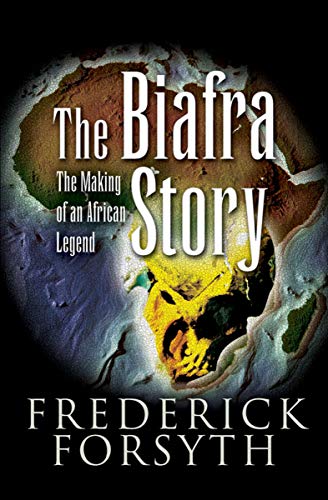
In the late 1960s, Nigeria mirrored the ghastly American and Spanish Civil Wars with its own 3-year war. Millions died, homes and ideologies perished, and the Biafrans still have not gotten their independence but their struggles remain a staple in Nigerian history.
As a correspondent for BBC, Fredrick Forsyth covered the war as a journalist. Detailing his observations, Frederick writes about Biafra, his thoughts on the proposed nation, and its struggle to establish itself. It has since come to be regarded as “a modern classic of war reporting.” The book “voices outrage not only at the extremes of human violence, but also at the duplicity and self-interest of the Western Governments, most notably the British, who tacitly accepted or actively aided that violence.” It’s an interesting read for someone who wants to read about Nigeria from another perspective.
“Purple Hibiscus” by Chimamanda Adichie
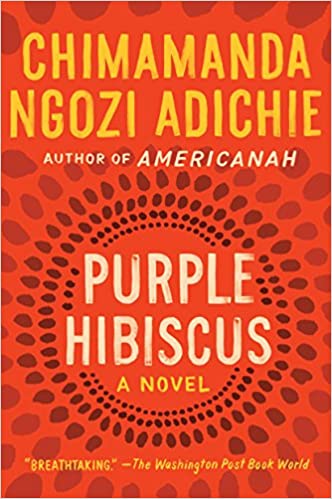
The first time I read this book, I was maybe 12, and even though I relished each page and immersed myself in its characters and story, I didn’t fully grasp the idea behind the book. When I reread it, I became aware of how the central idea of the story is about a young girl who struggles to stand up for herself. It’s an incomplete way to describe the masterpiece but the lesson I got from this book is that if you are not able to destroy fear, it will overcome you.
After being sent to her aunt’s house, Kambili and her brother, Jaja, discovered life and love beyond the confines of their father’s strict controls. The visit gave rise to a defiance that revealed itself in profound and unexpected ways. This is a book about the promise of freedom, about the blurred lines between childhood and adulthood, between love and hatred, between the old gods and the new. The book is a beautiful tale that crosses between fanatical religion, love and freedom, and independence.
“Ake” by Wole Soyinka
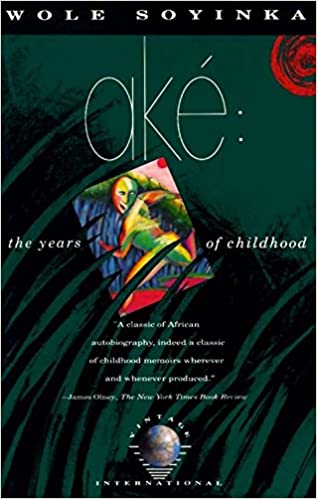
This book is a fun-filled and drama-packed autobiography that gives insight into the childhood of the Nobel laureate. Raised by Christian parents and his grandfather, Soyinka’s Ake is a lens through which we view his boyhood and the making of a literary legend. Adventurous and humorous, the book evokes love and admiration for the beautiful Yoruba culture and represents the beauty and naivety of childhood in Africa.
“I Do Not Come to You by Chance” by Adobe Tricia Nwaubani
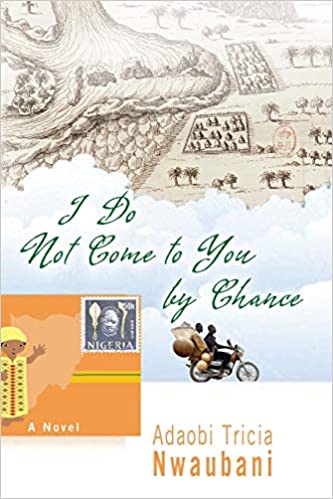
Kingsley Ibe was trapped in the cage of poverty and desperation. When his father fell ill and all his efforts to find a job turned futile, Kingsley visited his wealthy uncle, Cash Daddy, and was thrown into email-scamming.
Working under Cash Daddy, AKA Boniface Mbamalu, Kingsley was glued to this illegal business because of the fast money he made. Cash Daddy joined politics and unfortunately died amidst political drama. Innocent, goody-two-shoes Kingsley was then turned into a 419 kingpin.
Amongst all of this, his brother, Godfrey, told him that although his family is living the ‘good life,’ his mom resents where he gets his money from. After a ferocious battle with his mom, Kingsley’s family abandoned him and he was left to wonder if this destiny was his choice or came to him by chance.
I Do Not Come to You by Chance is a good read. It is emotional to think about how many modern-day Nigerian lives this book narrates. It’s quintessential in the understanding of the importance of education in a third world country like Nigeria and it left me wondering if education is the key to success.
And Four Other Things
Finding time to read all these books might be impossible with busy schedules, Lagos traffic, and a constant workload. Simon Kolawole’s weekly column offers the perfect fix.
Simon Kolawole is the founder of Cable Newspaper Limited, and he writes a weekly column on ThisDay newspaper. His column, And Four Other Things, is not necessarily historically significant but he brings fresh perspectives and insight to the week’s news. His writing is smooth, direct, and will ensure that you have all the news in five minutes.
***
All photos are gotten from Amazon.


